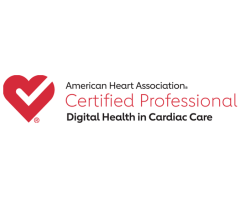
March 24, 2017 — Safe implementation of new technologies and therapies accompany classic patient safety challenges on ECRI Institute's “2017 Top 10 Patient Safety Concerns for Healthcare Organizations.” The report highlights concerns from health information management, clinical decision support and new oral anticoagulants, to long-standing concerns like test result reporting and follow-up and unrecognized patient deterioration.
The institute relied on its Patient Safety Organization (PSO) event data, concerns raised by healthcare provider organizations, and on expert judgment to select the topics for the 2017 list. Since 2009, when ECRI Institute PSO began collecting patient safety events, the PSO and partner PSOs have received more than 1.5 million event reports and reviewed hundreds of root cause analyses.
This year's list includes:
- Information Management in EHRs (electronic health records)
- Unrecognized Patient Deterioration
- Implementation and Use of Clinical Decision Support
- Test Result Reporting and Follow-Up
- Antimicrobial Stewardship
- Patient Identification
- Opioid Administration and Monitoring in Acute Care
- Behavioral Health Issues in Non-Behavioral-Health Settings
- Management of New Oral Anticoagulants
- Inadequate Organization Systems or Processes to Improve Safety and Quality
Topping the list this year is information management in electronic health records (EHRs). Healthcare providers have troves of information to manage, and the advent of EHRs has brought this challenge to the forefront.
"But the object is still for people to have the information that they need to make the best clinical decision," said Lorraine B. Possanza, DPM, JD, MBE, program director, Partnership for Health IT Patient Safety, ECRI Institute. "Health information needs to be clear, accurate, up-to-date, readily available and easily accessible."
Patient deterioration, second on this year's list, can have catastrophic consequences if undetected. Over the past few decades, improved clinical protocols, training and education for providers, and public awareness campaigns have enabled speedier recognition of, and response to, stroke and ST-elevation myocardial infarction (STEMI).
"People have seen how well the campaigns have worked for stroke and STEMI and how much they've improved outcomes," said Patricia N. Neumann, RN, MS, senior patient safety analyst and consultant, ECRI Institute. "What if those same principles could be applied to other conditions that require fast recognition and management? We could have a big impact on improving outcomes," Neumann suggested.
Implementation and use of clinical decision support (CDS), third on this year's list, encompasses "tools that we use to ensure that the right information is presented at the right time within the workflow," explained Robert C. Giannini, NHA, CHTS-IM/CP, patient safety analyst and consultant, ECRI Institute. But if implementation or use is suboptimal, opportunities for CDS to aid decision making may be missed. Care could suffer, and patient harm could result.
The list and associated guidance is intended to help healthcare organizations identify priorities and aid them in creating corrective action plans. ECRI Institute is providing free access to the Executive Brief at www.ecri.org/PatientSafetyTop10. Additional resources throughout the report are available to members of ECRI Institute PSO and to ECRI's Healthcare Risk Control program.
ECRI Institute encourages organizations to adapt relevant patient safety interventions to meet each care setting. Although not all patient safety concerns on the list apply to all healthcare organizations, many are relevant to a range of settings across the continuum of care.
For more information: www.ecri.org


 November 14, 2025
November 14, 2025 









